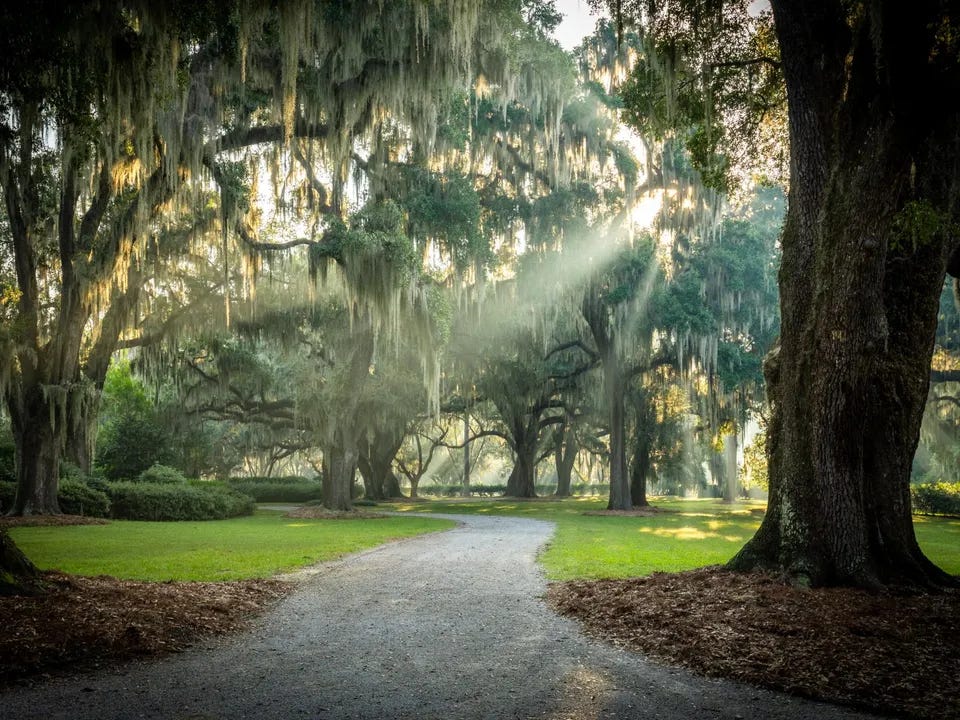Beyond the Gates of Bonny Hall Plantation
A place for peaceful viewing along the Combahee River in the heart of the ACE Basin.
If these storied grounds and ancient oaks could whisper, the tales they could spin of Bonny Hall would be fitting metaphors for the rise and fall and rise again of the Lowcountry region that stretches from Charleston down to Savannah. Here, along the Combahee, is where some of the darkest moments in U.S. history occurred.
Arriving at the front gate, we knew we were about to embark on historical grounds where brave soldiers fought battles for our freedom during the Revolutionary War. Shrouded in mystery and beards of Spanish moss these trees hold secrets of long ago. We were standing on land where once members of Congress and elites of the world had once stood.
In the waters nearby Harriet Tubman, often referred to as the “Moses of her people” was a former slave who fled to freedom in 1848. Unimaginable courage lived inside her as she risked her life many times to help slaves escape through the Underground Railroad. She was the first woman to lead a major military operation in the United States when she and 150 African American Union soldiers rescued more than 700 slaves, leading them to freedom in the Combahee Ferry Raid during the Civil War.
Weary slaves coming in from sweltering days in rice fields sought solace in the shade of giant branches of these towering oaks. Generations of young children played beneath these heavy boughs while men with shotguns dressed in camouflage returned from their hunt to brag of their treasure.
It was men of wealth, privilege, and political power from around the world who once gathered here, and hunted ducks, wild turkey, and deer. In 1934 Ellen McCarter Doubleday, wife of renowned publisher Nelson Doubleday purchased the property. During the 1940s English author William Somerset Maugham, the undisputed master of fiction lived on the property and wrote the acclaimed novel, The Razor’s Edge.
In the early twentieth century, residents here could travel from place to place in small bateaux along tidal creeks or walk down dusty, track-worn country roads.. Some traveled by railroad, sailboat, rowboat, ferry, or by one of the steamers hauling passengers and cargo on their regular runs serving Savannah, Beaufort, and Charleston.
Access to Bonny Hall is limited: treasures it contains are seldom seen. Hidden away are vistas in backwater creeks that most will never see. However, an evocative amalgamation of landscape and rivers and awe for the lives who fought for freedom and lived and worked throughout this land leaves an indelible impression that will not be forgotten.






